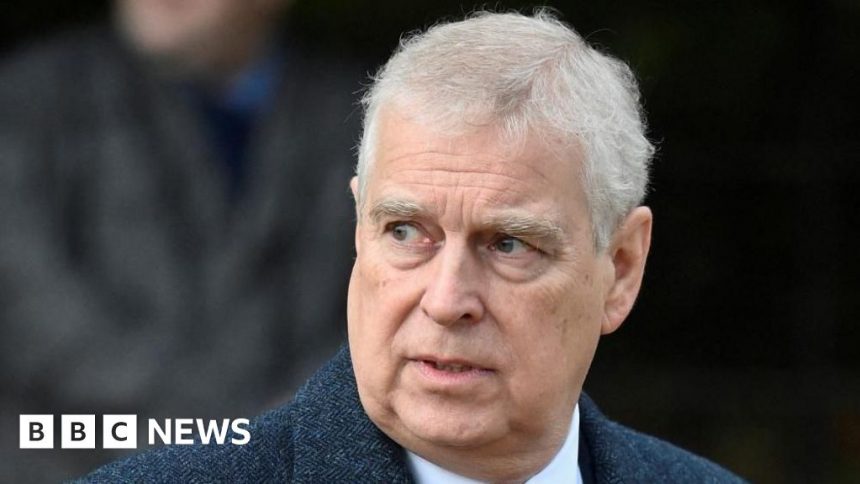Andrew ‘confidant’ banned from UK over national security
 Reuters
ReutersA Chinese businessman described as a “close confidant” of the Duke of York has lost an appeal against a decision to bar him from the UK on national security grounds.
The man, known only as H6, brought the case after being banned from entering the country in March 2023 by the then-Home Secretary, Suella Braverman.
Judges heard the businessman had formed a close working relationship with Prince Andrew, receiving an invite to his birthday party in 2020 and being told he could act on the duke’s behalf when dealing with potential investors in China.
Buckingham Palace declined to comment, saying only that they do not act for the prince, who is a non-working royal.
H6 brought his case to the Special Immigration Appeals Commission, a court set up to consider appeals against decisions to ban or remove someone from the country on national security or related grounds.
In the published ruling, the judge said that Braverman was “entitled to conclude that [H6] represented a risk to the national security of the United Kingdom, and that she was entitled to conclude that his exclusion was justified and proportionate”.
The ruling delved into the reasons for the home secretary’s original decision as well as communications between H6 and a senior adviser to the duke.
In one letter, found on one of the businessman’s electronic devices, the adviser told him: “Outside of [the prince’s] closest internal confidants, you sit at the very top of a tree that many, many people would like to be on.”
It adds: “Under your guidance, we found a way to get the relevant people unnoticed in and out of the house in Windsor.”
No further details about who the “relevant people” were are given in the excerpt from the letter included in the ruling.
The ruling said H6 had surrendered a number of electronic devices, including a mobile phone, after being stopped by UK border security in November 2021.
He was subsequently informed that he was believed to be associated with the United Front Work Department (UFWD), an arm of the Chinese Communist Party (CCP) tasked with conducting influence operations.
The ruling said MI5 had expressed concern about the threat posed to the UK by political interference by China and that bodies such as the UFWD were “mounting patient, well-funded, deceptive campaigns to buy and exert influence”.
The Home Office said they believed H6 had been engaged in covert and deceptive activity on behalf of the CCP and that his relationship with Prince Andrew could be used for political interference.
Upholding Braverman’s decision, the judges said H6 had won an “unusual degree of trust from a senior member of the Royal Family who was prepared to enter into business activities with him”.
They added that the relationship had developed at a time when the duke was “under considerable pressure” which “could make him vulnerable to the misuse of that sort of influence”.
In November 2019, the duke stepped back from royal duties amid growing public anger about his friendship with the late US financier and sex offender Jeffrey Epstein.
Questions were subsequently raised about his finances after he reached a settlement – believed to run into the millions – in a civil sexual assault case brought against him by Virginia Giuffre, one of Epstein’s accusers. The duke has always denied assaulting Ms Giuffre.
Last month, a royal biography claimed the prince’s brother, King Charles, had cut him off financially, ceasing to pay for security at his home or provide him with a personal allowance.








